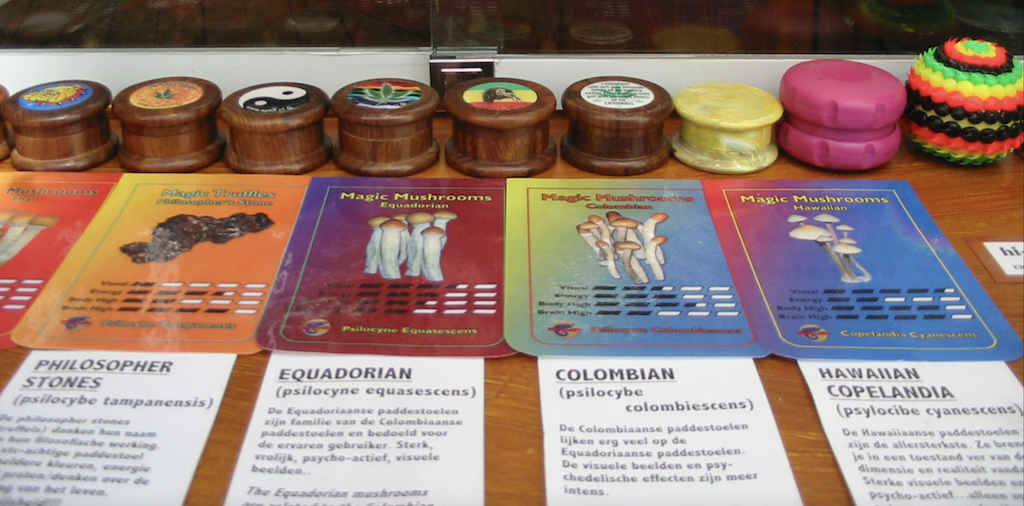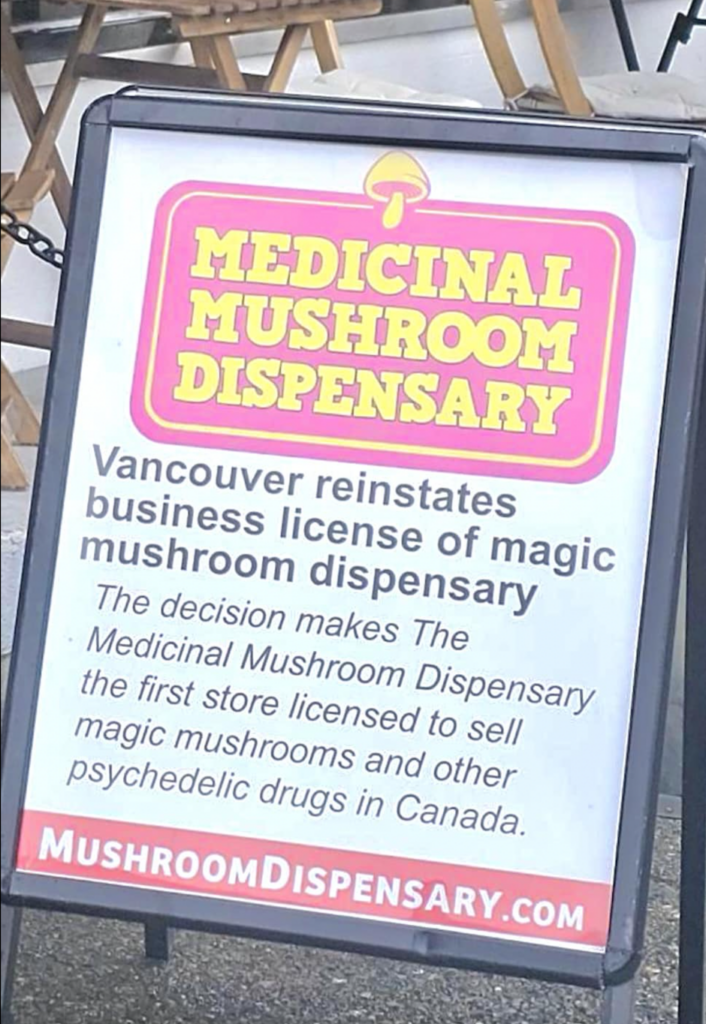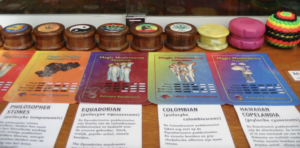
City councillor says regulatory framework needed for psychedelics in Vancouver
“There is a role for that activism from the city.”
One Vancouver city councillor says it is time for the city to consider a regulatory framework for psychedelics, after a mushroom dispensary had its business license reinstated during a council hearing last week.
The dispensary’s license was suspended last year and was the subject of a police search and seizure in November. Other stores have also been raided by Vancouver police as part of “an investigation into the sale of illicit psychedelic drugs from storefronts throughout the city.”
Last week’s hearing involved three council members including councillor Pete Fry, who says the conversation has led to further discussion about psychedelics in Vancouver.
“This conversation did serve as a catalyst for us to consider bringing forward a motion to explore how we can implement a regulatory framework, similar to what was done with marijuana,” Fry told PressProgress.
Although the hearing doesn’t necessarily mean the shop’s activities are legal, Fry says that there are a number of shops existing in Vancouver that operate in a legal grey area, similar to cannabis shops prior to legalization.
However, Vancouver Mayor Ken Sim took issue with the council’s decision to reinstate the dispensary’s business license at the hearing.
Kim accused Councillor Fry and Councillor Adriane Carr of participating in “activism on matters beyond the jurisdiction of the city of Vancouver.”
See below for my official statement on today’s Business Licence Hearing decision: pic.twitter.com/RBsn9wBKG6
— Mayor Ken Sim (@KenSimCity) March 6, 2024
Fry says that activism has historically had a place within the city of Vancouver.
“At the time that marijuana was illegal, there was a proliferation of marijuana retail shops throughout Vancouver, and the city of Vancouver came up with a regulatory framework years before cannabis was actually legalized in Canada,” Fry said.
“So there is a role for that activism from the city.”

A sign posted outside of the mushroom dispensary
Fry adds that he “completely disagrees” with the politicized discourse around drugs being pushed by Sim’s ABC Party and other right-wing actors in the province.
“There was no evidence of public complaints with this business—in fact, this investigation was only initiated after an opposition MLA from Surrey had brought this up and then the next day there was an investigation launched,” Fry said.
“I think it just harkens back to this arch-conservative drug war hysteria that we’ve seen time and time again from these right wing actors and the ABC is showing their true colors by equating a war on drugs to public safety.”
While Fry says a motion will simply initiate debate about potentially exploring a regulatory framework for psychedelics, he hopes that more weight is given to the fact psychedelics have become popular in the city of Vancouver.
“There’s a reason so many shops have popped up. There’s a whole trend towards microdosing mushrooms and recreational psychedelic use that is growing in popularity and we’re seeing young people who are drinking less and doing more psychedelics,” Fry said.
“We’re in a pretty grey area around a lot of this stuff. The least of which is because of the provincial decriminalization of class one drugs including class three MDMA. I couldn’t disagree more with what ABC are putting out there as a message.”
Mark Haden, Adjunct Professor at UBC’s School of Population and Public Health says the regulatory grey area with psychedelics in Vancouver has highlighted that prohibition does not work.
“Prohibition is a failed social policy and has been failed for a long period of time. It doesn’t do any good, in fact it does a significant amount of harm,” Haden told PressProgress.
“We as a society need to approach drugs in a completely different way. Regulating and controlling them makes a whole lot more sense because you can actually do that. You cannot effectively prohibit, but you can regulate.”
Haden says that applying a regulatory framework to psychedelics is a wise decision given the outcome of cannabis legalization.
“Vancouver played a leadership role in creating this policy of legalization of cannabis, which has only done us good. Now we get tax revenues from it and there’s none of the harms of prohibition—which are multitudes,” Haden said. “It is wise to take the win and the success story of cannabis and apply it to other substances.”
In addition, Haden says that responding with police interventions are a costly way of engaging with people who use drugs.
“The criminal justice system is a very expensive way to engage with people. So that produces social harms. It’s sucking money out of the taxpayers wallets that could go to schools and education and health interventions,” Haden said.
According to Haden, research has also shown that the use of psychedelics is associated with a reported positive impact on health.
“In the US National Health Survey database, the people who reported using psychedelics were generally more mentally healthy and had lower suicidality and lower rates of depression than the general population,” Haden said.
“So the idea that we’re targeting these people with police interventions when generally there are healthier and having social benefit is actually a really unwise thing for our society to do. A wise society would say, ‘how do we maximize the benefits and minimize harms,’ and one way of maximizing the benefits of these substances is allowing people to use them.”
Our journalism is powered by readers like you.
We’re an award-winning non-profit news organization that covers topics like social and economic inequality, big business and labour, and right-wing extremism.
Help us build so we can bring to light stories that don’t get the attention they deserve from Canada’s big corporate media outlets.
Donate



